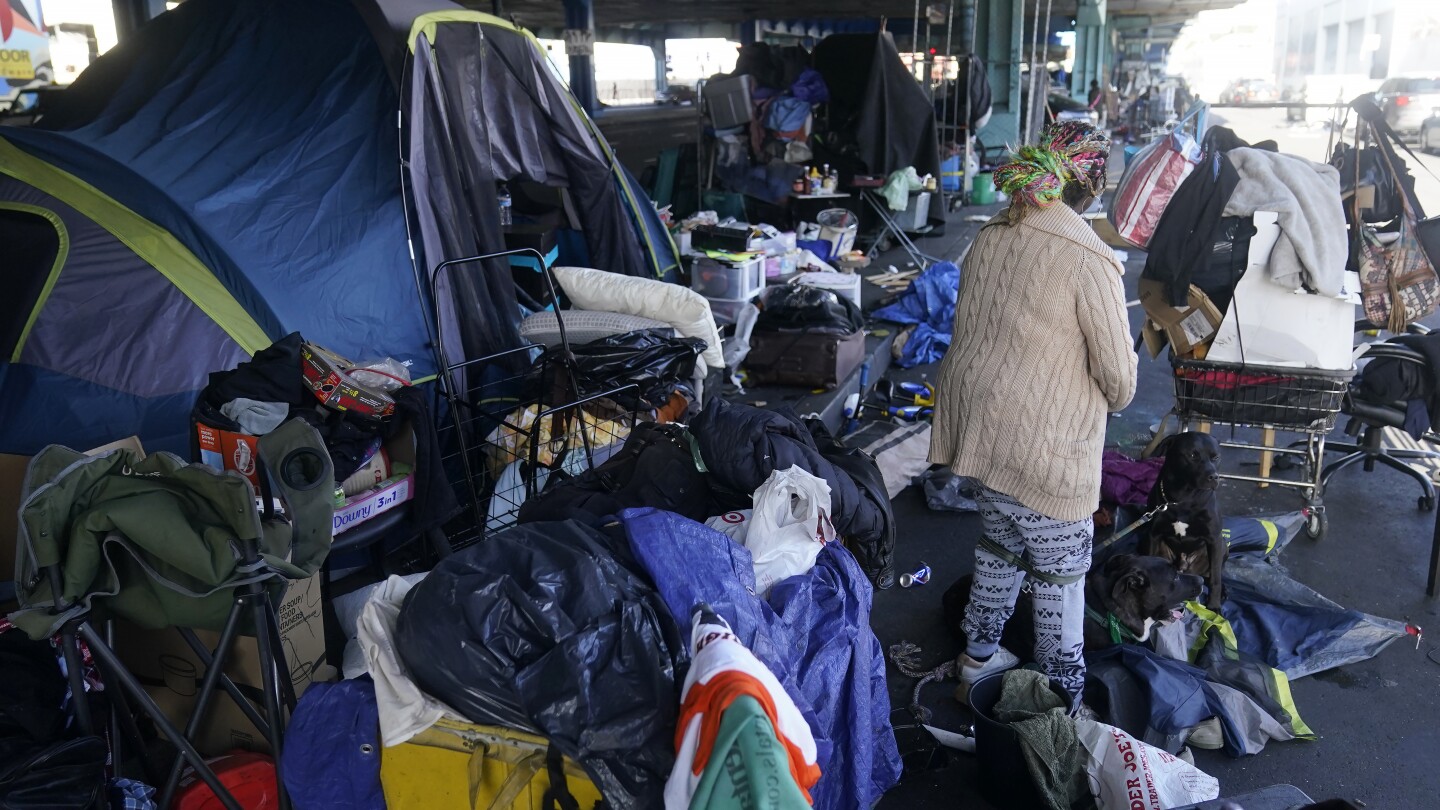The justices on Monday will consider a challenge to rulings from a California-based appeals court that found punishing people for sleeping outside when shelter space is lacking amounts to unconstitutional cruel and unusual punishment.
A political cross section of officials in the West and California, home to nearly one-third of the nation’s homeless population, argue those decisions have restricted them from “common sense” measures intended to keep homeless encampments from taking over public parks and sidewalks.
Advocacy groups say the decisions provide essential legal protections, especially with an increasing number of people forced to sleep outdoors as the cost of housing soars.
The case before the Supreme Court comes from Grants Pass, a small city nestled in the mountains of southern Oregon, where rents are rising and there is just one overnight shelter for adults. As a growing number of tents clustered its parks, the city banned camping and set $295 fines for people sleeping there.



Yes, we spend $81B per year on mass incarceration, and the money made by forced labor does not go to funding the prisons. Therefore, those who profit off of the federally subsidized slave labor are not eager to change the current system, and have ample funds for lobbying.
https://truthout.org/articles/major-brands-like-mcdonalds-kroger-and-coca-cola-linked-to-forced-prison-labor/